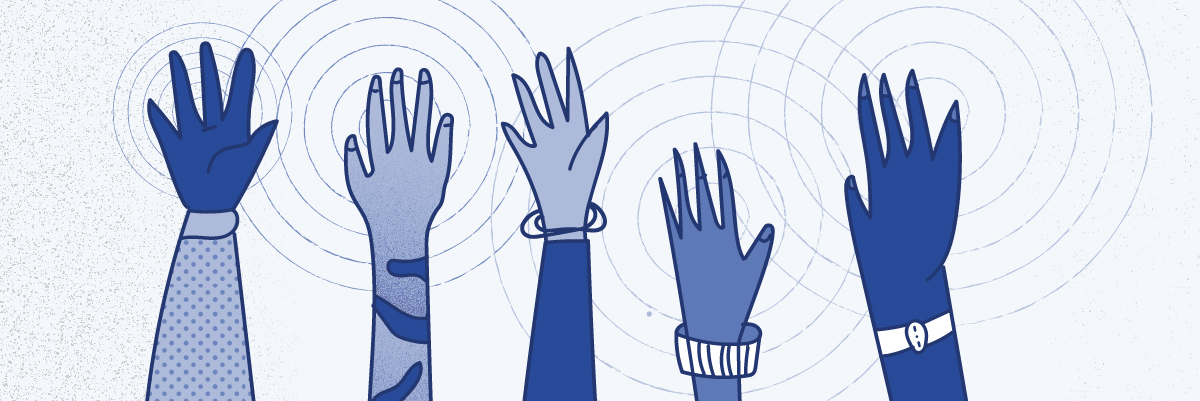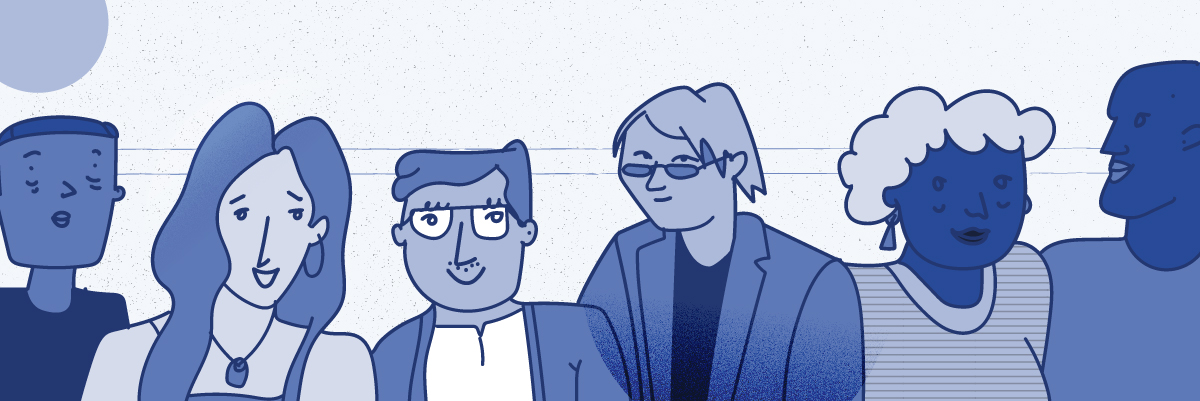These days, being forward-looking is about much more than implementing new technologies. In fact, there’s definitely a strong case for the primary importance of the human element—namely, diversity and inclusivity. As a result, we’ve taken the time to thoroughly consider the very real benefits of diversity in the workplace. How does it help, exactly? And, where do we go to make things even better in the future? Stay tuned to find out!
“Diversity” is much more than simply a buzzword, or an in-vogue term that companies use to make themselves seem cool. It’s a way to make the invisible, visible, and to help every voice be heard above those that we’ve learned to see as the standard. Thus, it’s much more than about groups, marginalization, or oppression; it’s about opportunities, and about creating a space that is not just productive, but respectful, safe, and welcoming to many rather than a few.
So, it goes way beyond the mere surface, and ties into political and social concerns that bind us all together. While it’s all well and good with maintaining a stellar reputation, the end goal is to make things better for everyone. But, of course, the story doesn’t end there, and there are even more benefits of diversity in the workplace.
For instance, did you know that more diverse, inclusive teams tend to be more productive? Yes! If you thought that inclusivity was all about pie-in-the-sky ideals, you couldn’t be more wrong. It turns out that diverse workplaces tend to outperform others in productivity metrics. Yes, things can be good both in a human and in a bottom-line sense.
Let’s take a look.
Diversity in the Workplace Defined
For a word that gets thrown around a lot, not many people seem to define it correctly. Beyond equity and egalitarianism, what is it in the context of a workplace? Give a Grad a Go chime in with this definition:
Put very simply, diversity in the workplace means that a company hires a wide range of diverse individuals. Diversity is often misconceived as solely multicultural matters, however it also applies to diversity of gender, race, ethnicity, age, sexuality, language, educational, background, and so on.
Moreover, it’s not just about representation, but inclusion in every facet of work; the idea is for everyone to be able to find equal participation. So, it’s important to take diversity in hand with its sibling, equality.
But, of course, not everything is rose-colored. For one, people still tend to shun diversity efforts and don’t see the benefits of diversity in the workplace. A 2019 study from the University of Michigan talked about this negative prejudice and how it affects workers. The research, covering 6,432 employees, says:
One possible reason that’s usually too subtle to be mentioned in an exit interview: “Diversity hires” are often assumed by other employees to have been hired for their sex or their skin color alone, not because they’re qualified for their jobs — and that stigma even rubs off on the individuals themselves, so they either stop trying to get ahead or else just quit.
This idea of diversity being about “checking boxes” is outdated, and still a prevalent issue. Thus, in order to give a better idea of why companies need to create more opportunities for diversity and inclusivity to prevail, we need to take a look at why they work. Or, in short, we’ll take a look at the competitive advantages of diversity.

Benefits of Diversity in the Workplace
Employee Engagement
What’s one of the main nightmares for every manager around the world? That’s right, it’s keeping employees engaged. If you’re like us, you know that productivity decreases sharply without proper engagement and mental stimulation. Luckily, one of the main benefits of diversity in the workplace is that it keeps people engaged, and the environment lively and dynamic. Diversity actually increases morale and employee engagement across the board!
A Variety of Perspectives
It’s not personal, but we humans tend to become locked into our perspectives. Diversity in the workplace acts as the perfect antidote to that pesky tendency — it helps us reshuffle, reshape, and reorient our thoughts in new ways. And how does it do this? Precisely by exposing us to different viewpoints and ways to perceive the world. In very short words, sameness breeds staleness; diversity creates the possibility for new thoughts to emerge.
Also, by having employees of different ethnicities and backgrounds, you also encourage different skill sets and types of expertise as well. And we can’t tell you how much that makes the difference in entrepreneurial and corporate settings! It means more ways to tackle a problem and more ways in which to come up with alternate solutions.
Creativity Goes Through the Roof
Along with perspectives comes increased creativity. If you allow people to play off each other, you’ll find that they’re going to be able to come up with much better solutions and possible outcomes than with a stagnant, single perspective. Of the benefits of diversity in the workplace is creating a melting pot, a place where new ideas can flourish. Hence, the value of putting together people who can see things in different ways.
And that leads us neatly into our next point.
Creativity = Innovation
The benefits of diversity in the workplace go way beyond feel-good talking points; they also extend to results. According to a study by John Bershin, workplaces with higher diversity tend to innovate the most. Here’s what they had to say about it:
- 2.3 times higher cash flow per employee over a three-year period
- The smaller companies had 13 times higher mean cash flow from operations
- 1.8 times more likely to be change-ready and 1.7 times more likely to be innovation leaders in their market
- 3.8 times more likely to be able to coach people for improved performance, 3.6 times more able to deal with personnel performance problems, and 2.9 times more likely to identify and build leaders.
In short, these level 3 and level 4 companies are not just “better at HR,” – they are higher performing companies measured by business, financial, and talent outcomes.
In a nutshell, combining different perspectives is also a recipe for the kind of innovation that boosts productivity, sales, and output. And that’s something that you do not want to dismiss either.
Problem-Solving Gets Faster
What did we say about sameness breeding staleness? Truthfully, that applies to everything, and especially the realm of problem-solving. The more diverse a team, the more likely they are able to draw on different life experiences and pools of received wisdom. Thus, this increases the chances of finding solutions, workarounds, and ways out of trouble spots. This goes beyond “mere” diversity per se and gets into the realm of cognitive diversity. The team at Harvard Business Review said in their study on the matter:
Tackling new challenges requires a balance between applying what we know and discovering what we don’t know that might be useful. It also requires individual application of specialized expertise and the ability to step back and look at the bigger picture.
A high degree of cognitive diversity could generate accelerated learning and performance in the face of new, uncertain, and complex situations, as in the case of the execution problem we set for our executives.
The Bottom Line Also Gets Bigger
While the human element beats it all, there are other benefits of diversity in the workplace. While creating an inclusive environment is its own reward, this is still the world of business. But, as you probably know, in life it pays off to do the right thing. And, apparently, it looks like companies with diverse, inclusive teams are routinely among the top performers in their respective areas. This is probably due to all of the factors mentioned above, meaning:
- Better and faster decision-making.
- Cognitive diversity.
- A big pool of individual experiences to draw from.
- Higher creativity
More Benefits of Diversity in the Workplace
Of course, the benefits don’t end there. There are plenty more good things that come from increased diversity, awareness, and inclusion. Some of these are:
- Reduced employee turnover. Workplace diversity is a boon for employee retention because workers feel that their input is valued, along with acknowledgment of their identity and culture. As it turns out, people who feel accepted tend to stay in jobs longer and end up committing to your company vision.
- You also have a better company reputation. Workplaces that are diverse and inclusive tend to rank higher among places people want to work at. And it’s not just about becoming more interesting to potential workers. Also, you open the door for new ventures, partners, and markets.
- Having a better reputation also boosts your company’s hiring results. Most workers (around 67%) consider diversity an important asset for a potential workplace to have.
- Also, your company will experience a much higher degree of employee engagement. While this may seem counter-intuitive, it’s actually quite simple: employees that feel valued and included tend to focus more on their work and integrate better into the company culture.
Summing Up
The benefits of diversity in the workplace are plain for everyone to see. Of course, there are many ways to achieve this goal, and it’s up to you to create a company culture that resonates with your core values, and those of your workforce. But, it would be hard to deny that having a diversity of perspectives and backgrounds is the way to go for any workplace that wants not just to do better socially, but also productively and financially.
At Bunny Studio, we’ll continue championing diversity and equality, all the while providing the best creative services in the world. If you need to partner up with the best creatives around, hit us up!










